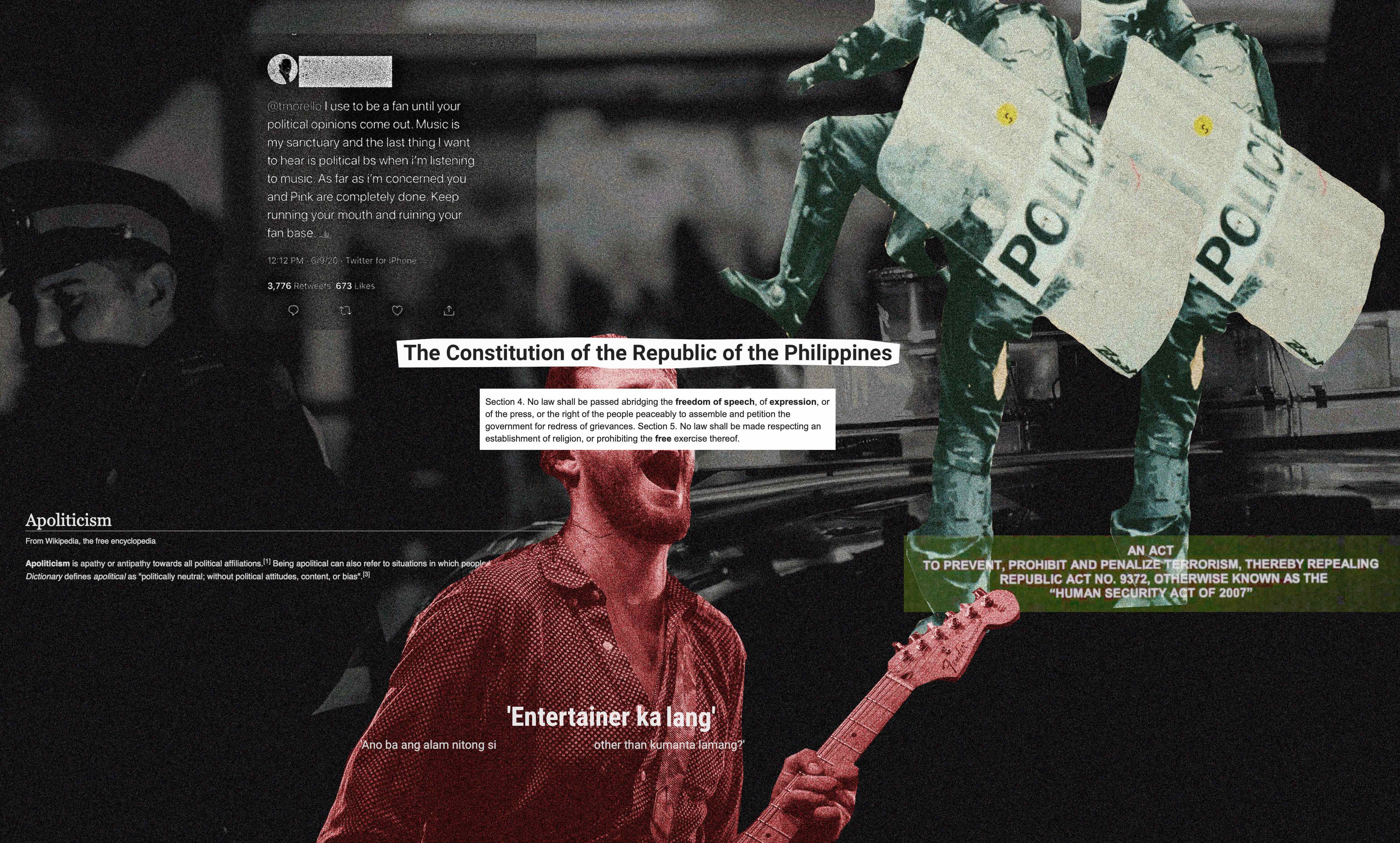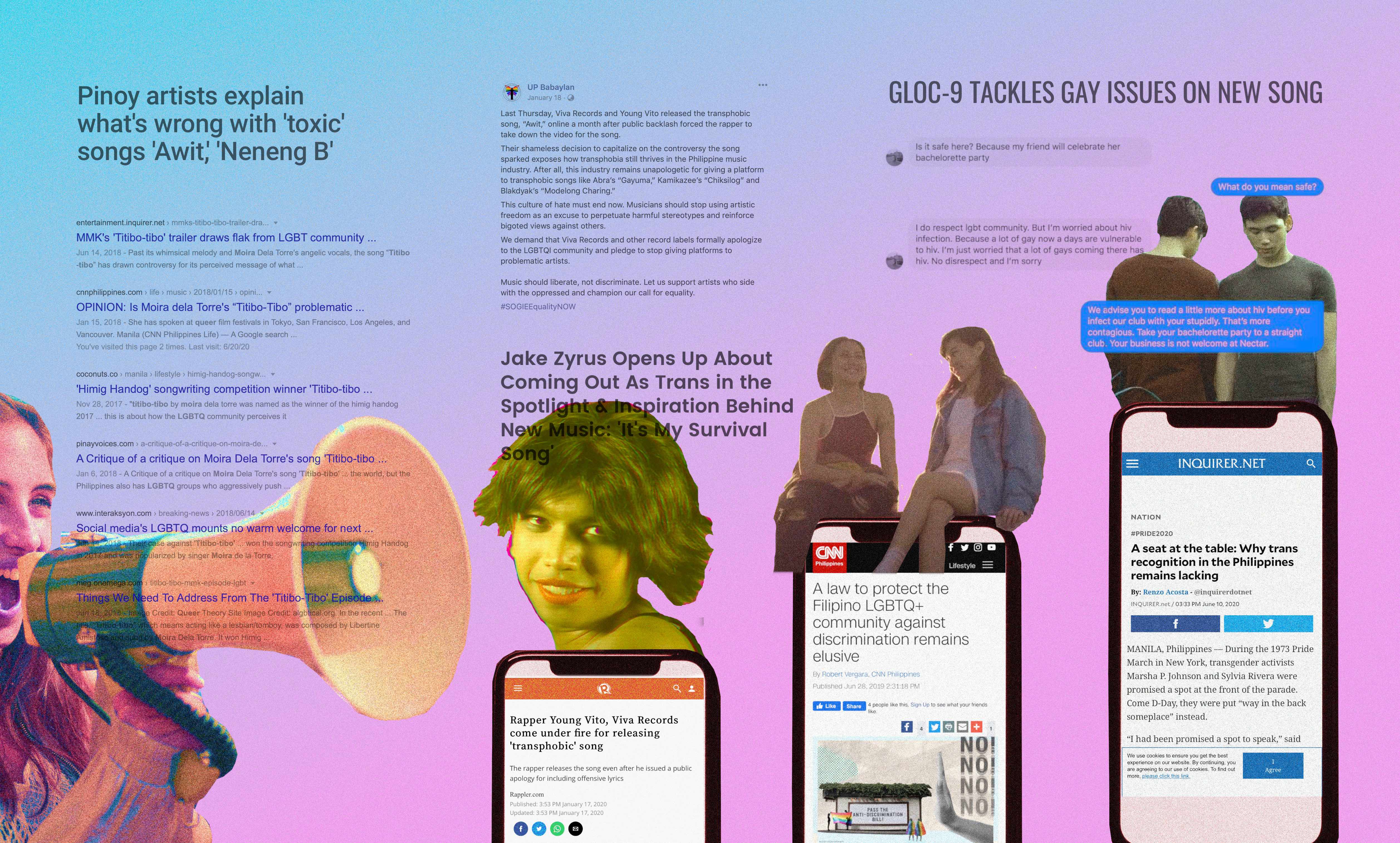Words by Aldus Santos
Header Art by MC Galang
Let me talk about congruency. About how the self-fulfilling prophecy is a myth. Certain people strike us in certain ways, and that estimation is almost always askew. “Too chill.” “A bit blasé.” “A seething ball of misplaced rage.” We misjudge on a regular basis, it seems. It’s a no-fail proposition, and the only thing that changes is how badly we’re wrong. But for all the times we’re right, we turn it into a weapon. Because being right is like wielding semi-automatic ammo. But this push and pull—the satisfaction afforded us by correctness, poised against the deathly, abysmal despair of being proven otherwise—is what life is kind of about. I told myself when I started writing here that I will say things straight. But if you know me, you know the air of certainty I sometimes exude (edit: maybe I never exude it, I don’t know) often coincides alongside an insufferable, anxiety-riddled desire to take things apart. And this time around, despite my strongest desires to say it straight about how music personalities should stop being mum about things that affect us all, I just want to, well, take it apart.
In my heart, one thing is clear: the “island” depicted in Simon and Garfunkel’s “I Am a Rock” is no place for an artist. “I am a rock, I am an island / And a rock feels no pain / And an island never cries,” Paul Simon sings in the closing couplet, and while it may simply be a persona he’s fashioned from narrative sleight-of-hand, it’s also a terribly telling one. That image of the blissfully (willfully?) unaware fool, nestled in a vacuum-sealed art-for-art’s-sake bubble, is nothing to aspire for. And while it’s nothing to condemn to the depths of hell either, I think we can all agree that his discomfort is neither cross nor thorn. It is what it is: a discomfort which tells us that, despite claims of hearing everything—in the studio, in his head, in harmonic patterns—the artist is ultimately incapable of listening. And I don’t want to be the kind of guy who spells things out, but those are two different things.
Now, for the more politically attuned among performers, music is a potent vessel for provocation, chiefly because change doesn’t happen if you ask politely. Meanwhile, for guys like me and my ilk—the sad-bastard guys, the guys who worry over chord changes and irrelevant shit like that—music is a problem-solving exercise. And then there are those music-makers who make songs that are as agreeable as oil-dowsed, sugar-dumped fast food and the imagination of a sack of hammers. But the truth of the matter is, whether you’re a post-rock whiz, a beat-sampling messiah, or a folk-style troubadour, your metaphorical position as someone at the lectern—with high-wattage amplification by your side, a halo of fancy lightwork casting you in silhouettes far from your actual self—is not a gift passed on like some Arthurian blade; it’s a mission. Because if you don’t speak up while the rest of us are being robbed and murdered, then you’re just as good as mall salesmen with Madonna headset-mics hawking fancy knives. “Give him a break, he sings about heartbreak!” Well, in this sad song? You are the heartbreak.
Music is a potent vessel for provocation, chiefly because change doesn’t happen if you ask politely.
I feel simultaneously mad and guilty about this, to be completely honest. But I am of the belief that past congruencies no longer hold water, and battling injustice is no longer the exclusive playground of Rage Against the freaking Machine and other guys who “look the part.” And I know a lot of musicians view vitriol that’s even the slightest bit “political” with both fear and caution—“I don’t know enough,” “It’s not my place,” “I’m not a politics kind of guy,” “I do care but don’t have to publicize my every thought”—and that’s okay. But the overwhelming inanity of the Old Man at the Palace and his henchmen, their travesties of democracy, and their hollow populist rhetoric? This earth-shattering disregard for our needs as an independence? All of these are no-brainers, and even the most forgiving and the most pacifist among us would be shaken to our core, if not nudged awake off our cushy chairs.
On a daily basis, we are assaulted by countless nameless-and-faceless people who argue like single-celled parasites, spewing—no, parroting—expertly tailored scripts that paint dissenters of any stripe as the enemy. A lot of our guitar-wielding friends also wield overwhelming numbers, and while art is labor and labor should be enough, they’re not like woodworkers, housepainters, or bakers. Which is to say, people go to them for something else beyond their wares, beyond their furniture and exquisite paintwork and bread, so to speak. They’re idealized figures whose word carries weight, and that weight shouldn’t be akin to cardboard painted like bricks. And judging from the noise I’ve been seeing from not-so-obvious sources (some a little misguided, others a tad self-important), I’m comforted in the thought that all is not lost.
Nobody’s asking any of us to be Chickoy Pura overnight. But a lot of us are great at making the loudest, most obscene noises, and that kind of artistic malevolence shouldn’t go to waste. We may not look the part, but rock ‘n’ roll is essentially cosplaying with a shamanistic twist, so why not? We can learn on the job. We can speak and feel and croon and dance our little Ian Curtis dance. But we can also be human.






